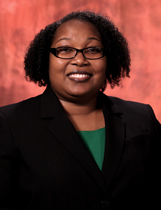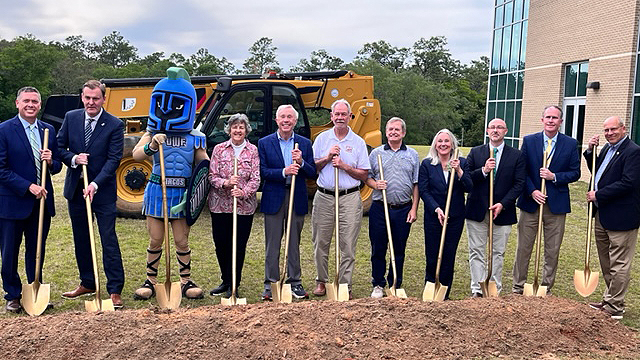Kerwyn L. Flowers, an assistant professor in the Department of Family Medicine and Rural Health at the Florida State University College of Medicine, has been selected to participate in the university’s Leadership Development Program for Emerging Leaders for the 2023-2024 academic year.

“I am honored to accept the invitation to the Emerging Leaders Program,” said Flowers, who also serves as director of rural medical education and director of clinical programs.
The leadership program, designed and led by Norman Anderson, assistant vice president for research and academic affairs and research professor of social work and nursing, works with deans to identify rising leaders and help them accomplish leadership or academic goals. The 2023-2024 cohort will be the fifth one to complete the program; 17 of the 20 who were nominated agreed to participate, Anderson said. The first class, in 2019-2020, had 12 participants. Since then, each cohort has had between 20 and 23 participants.
According to the invitation letter from Janet Kistner, FSU vice president for faculty development and advancement, and professor of psychology, the program initially focused on leadership development for department chairs, associate deans and leaders of research institutes.
“However, we are now in our fourth year of offering a year-long leadership program for ‘emerging leaders’ – those who are viewed by their deans as having clear potential for leadership and service at FSU and beyond,” Kistner wrote.
Flowers joined the College of Medicine faculty in the spring of 2017. Previously, she was a faculty member at the Floyd Medical Center Family Medicine Residency Program in Rome, Georgia, where she helped train residents and medical students in both inpatient and outpatient settings. She also served as the director of Osteopathic Medical Education.
She earned her bachelor’s degree at Florida A&M University, graduated from the Ohio University Heritage College of Osteopathic Medicine in 2007 and completed her family medicine residency at Akron City Hospital in Ohio in 2010. Following several years in private practice in the North Florida/South Georgia area, she completed an academic medicine fellowship at Northeast Ohio Medical University in Akron in 2015.
Flowers is dually board-certified in family medicine, from both the American Osteopathic Association and the American Board of Family Medicine. Her areas of special interest include musculoskeletal medicine, preventive health care, medical student education in clinical examination and diagnostic skills, patient partnership and empowerment, underserved communities and rural health.
She is the third faculty member from the College of Medicine to participate since the program’s inception. Flowers follows Naharika Suchak, associate professor from the Department of Geriatrics (2021-22) and Nicole Ennis, associate professor and vice chair of the Department of Behavioral Sciences and Social Medicine (2022-23).


